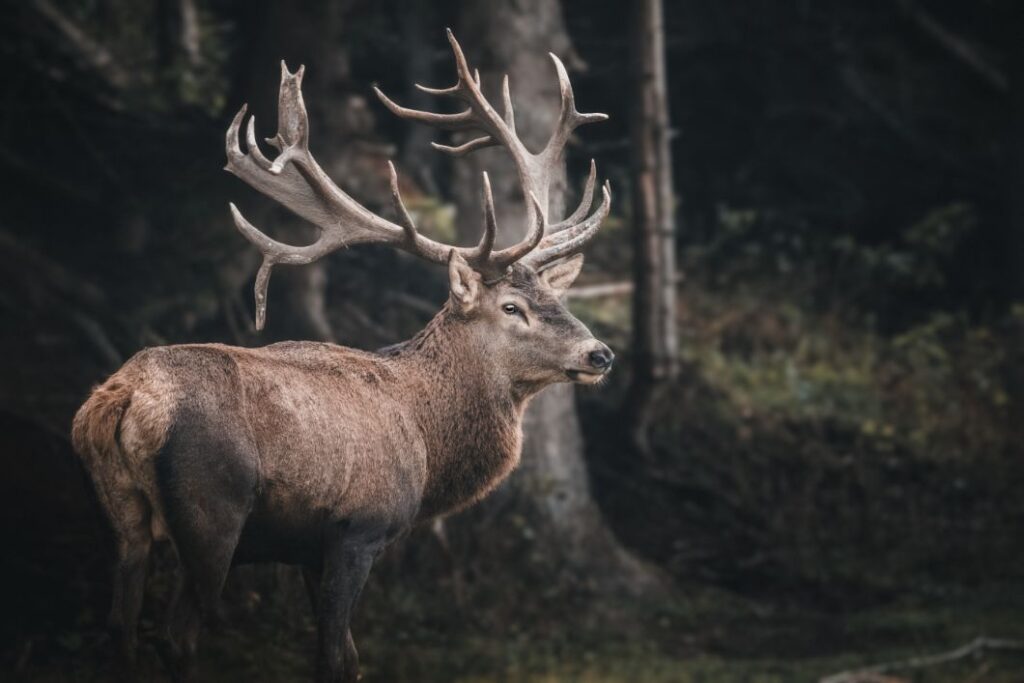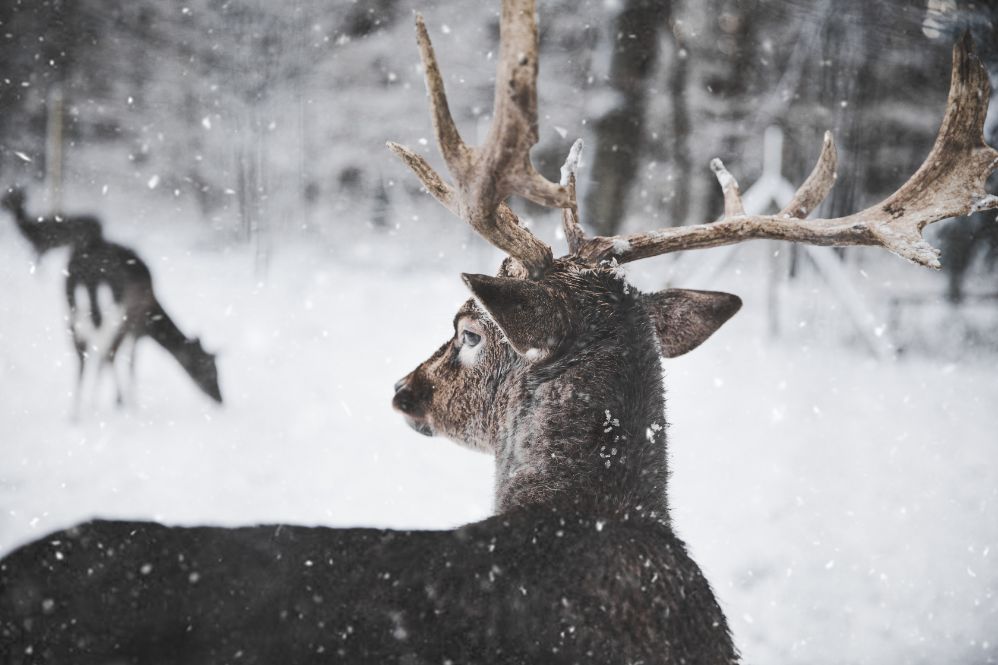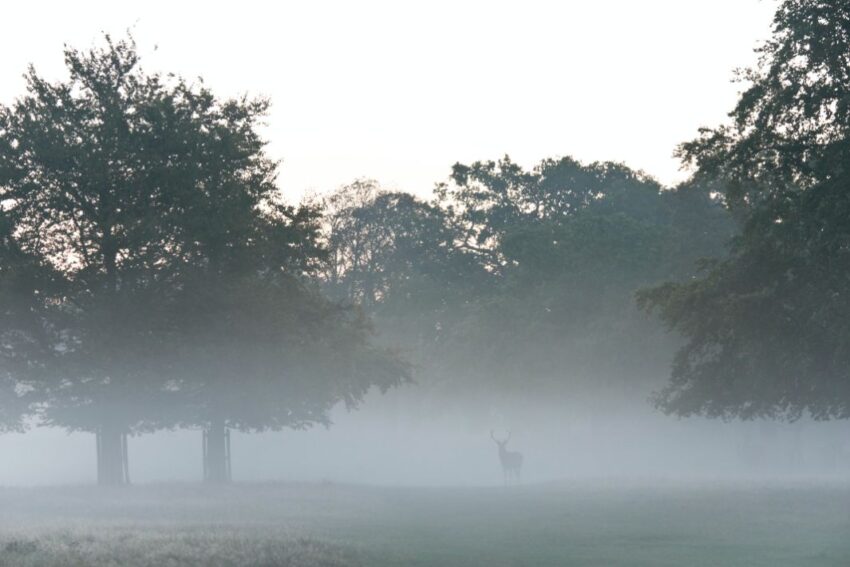When it rains, a lot of animals seek shelter, making it challenging to spot or hunt them. What about deer? Deer are not always disrupted in their travel patterns by light rain or winds. However, in times of heavy rain, many deer may hunker down and look for shelter in evergreen forests. In this article, we’ll examine whether deer move during rainy weather and how effective deer hunting will be.
Do Deer Move In The Rain?
Yes, deer do move in the rain, is the short answer, but the amount of movement depends on a few straightforward factors. The intensity of the rain, the season, and the recent weather are some of these key variables.
In this post, I explain how these factors affect deer movement so you can decide for yourself whether deer will be moving on the specific rainy day you want to hunt.
The Reason Why Deer Move When It Rains.
On days when it rains, deer move differently, and bucks move according to the intensity of the rain. Deer movement is not significantly impacted by rain in general.
Deer can move while it is lightly raining because they are still able to sense any danger. Being active, moving around, and feeding during light rain is worth the risk in their eyes.
Deer frequently cross highways as the grass turns green from light rain, which acts as a salad dressing on the grass that the animals enjoy foraging on at this time of year. Deer move slowly in light rain as their reflexes become more difficult.
Deer can tolerate rain to a point, but their movement is drastically reduced. While their senses are essentially useless, they will purposefully bed down to gain some sort of advantage over hunters and increase their chances of survival.
Deer emerge from the woods to graze on fields after it rains. After a fresh rain, many other animals, including chipmunks, squirrels, and other birds, emerge.
What Do Deer Do When It Rains?

Deer typically look for cover during periods of heavy rain, and the majority of them prefer to huddle under large trees or a forest canopy. In the absence of rain, deer spend the majority of their time in grasslands. Then, they must go out again to hunt. In the meantime, they must eat whatever they can find.
As a result, when they emerge during the rainy season, hunters view this as a prime opportunity to hunt them because the rain somewhat impairs their defense mechanisms. Deer have a very difficult time hunting in the rain when they leave their shelter or the woods.
Although most deer hide out under big trees or forest canopies during periods of heavy rain. On the other hand, mule deer reside in regions where these kinds of woods are uncommon.
Simply put, because there is less daylight, deer simply roam more during the day and prolong their dawn and dusk routines. Low light conditions make the animals feel less threatened. When it’s not raining and the sky is clear, they prefer to move.
Because whitetail deer are so common and plentiful everywhere, hunters flock during the rainy season. However, due to their exceptional biological vision, which allows them to see at almost a 314-degree angle, whitetail deer are able to see almost everything behind them.
A whitetail deer’s ability to see even the smallest movements is made possible by the position of their eyes on the sides of their heads and the fact that their structure is dichromatic.
Whitetail deer are confined to dense forest areas for long periods of time, so when they have empty stomachs, they emerge from their bed areas to gorge on food and fill their bellies. This makes hunting whitetail deer after heavy rain very productive.
Do Deer Enjoy Rain?
So, even though we’ve looked at how rain can affect deer behavior, we still don’t know if they actually enjoy it.
Hunters have reported that deer are more active in the rain, and this has sparked speculation about whether deer just prefer the rain.
This isn’t the case, as there are evolutionary explanations for the reasons why deer activity has increased. A deer’s ability to smell is impaired by heavy rain, and the sound of the rain can mask the sounds made by potential predators.
Deer like to enlarge their field of vision to provide themselves with an additional layer of protection while attempting to make up for this obstruction.
Deer tend to congregate in open field areas when it rains because they have a better chance of spotting any predators or hunters looking for them. The increase in open activity has given rise to the misconception that deer enjoy the rain when in reality they need it for protection.
In What Types Of Weather Do Deer Move?
After examining how rain affects deer movement, let’s turn our attention to other weather conditions. The two main environmental factors that influence deer movement are the temperature and the amount of cloud cover.
When the weather is colder, deer appear to move more. This could be because they will need to forage for longer periods of time in order to maintain their body heat.
Deer may be hiding out in a more secure environment getting ready for bed, so hunters find that clear skies are best for hunting them. The speed of the wind is another weather factor that might influence deer movement.
Contrary to expectations, it appears that deer sightings are more likely the stronger and faster the wind blows. Combining all of these, it would appear that a chilly day with clear skies and strong wind would be the best day for hunting.

Is Deer Hunting In The Rain Productive?
It doesn’t seem all that appealing to think about hunting in the rain and the cold. Experienced hunters have, however, hunted very successfully in these weather conditions.
Given that this is untrue, it is challenging to guarantee that every hunt will be successful in the rain. It does depend on the amount of rain and the kind of deer you are hunting.
Due to deer’s understanding that rain masks the sound of their movements, you are more likely to have successful hunts in open field areas when it is lightly raining. Additionally, they are aware that hunters are less likely to venture outside in the rain.
If you experience a slightly greater setback, the deer are most likely to be in protected forest areas. A moderate amount of rain won’t make them settle down, but it will slow down their movement in open fields.
A torrential downpour is not ideal because deer frequently go to bed in this type of weather. The hunters have claimed that as soon as the storm passes, it is a very fruitful time, so long as you are willing to wait out the storm.
This is due to the fact that deer will take advantage of the chance to move quickly and forage, something they were unable to do during the storm.
Read More:

